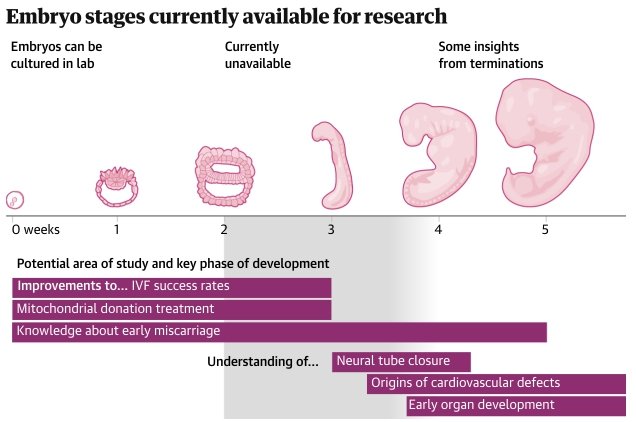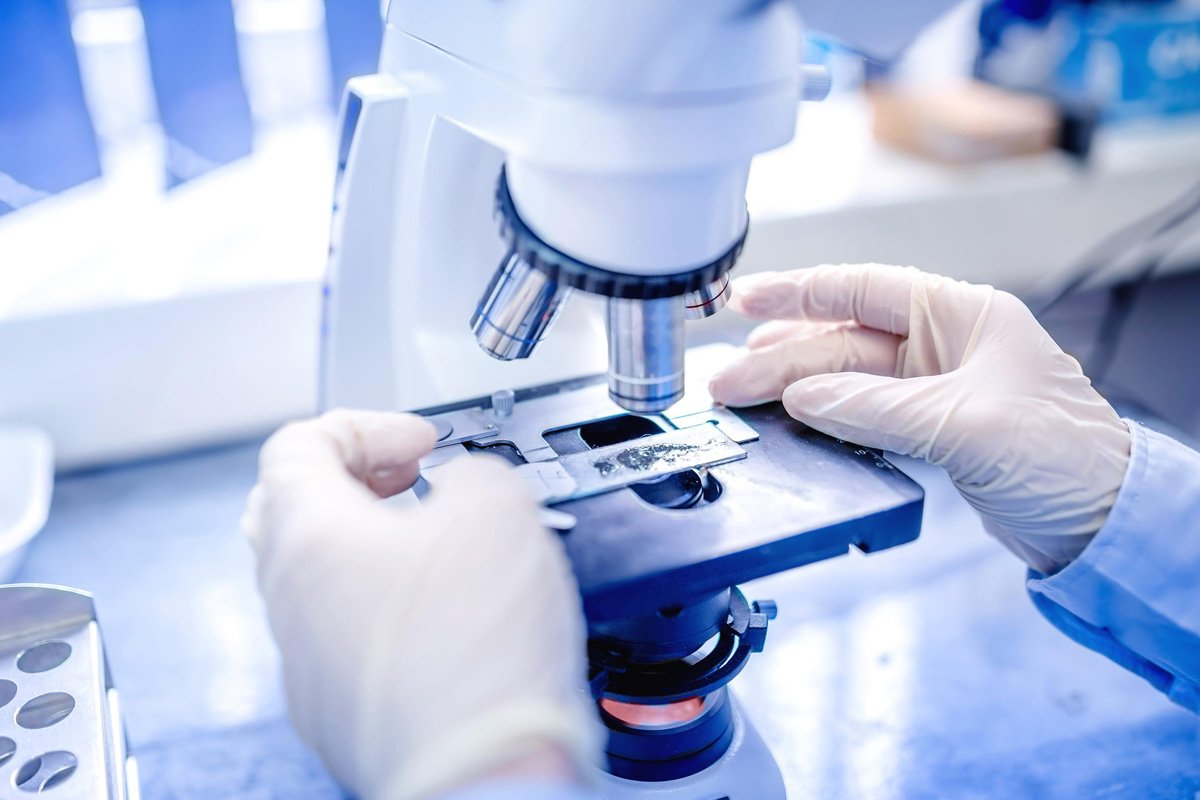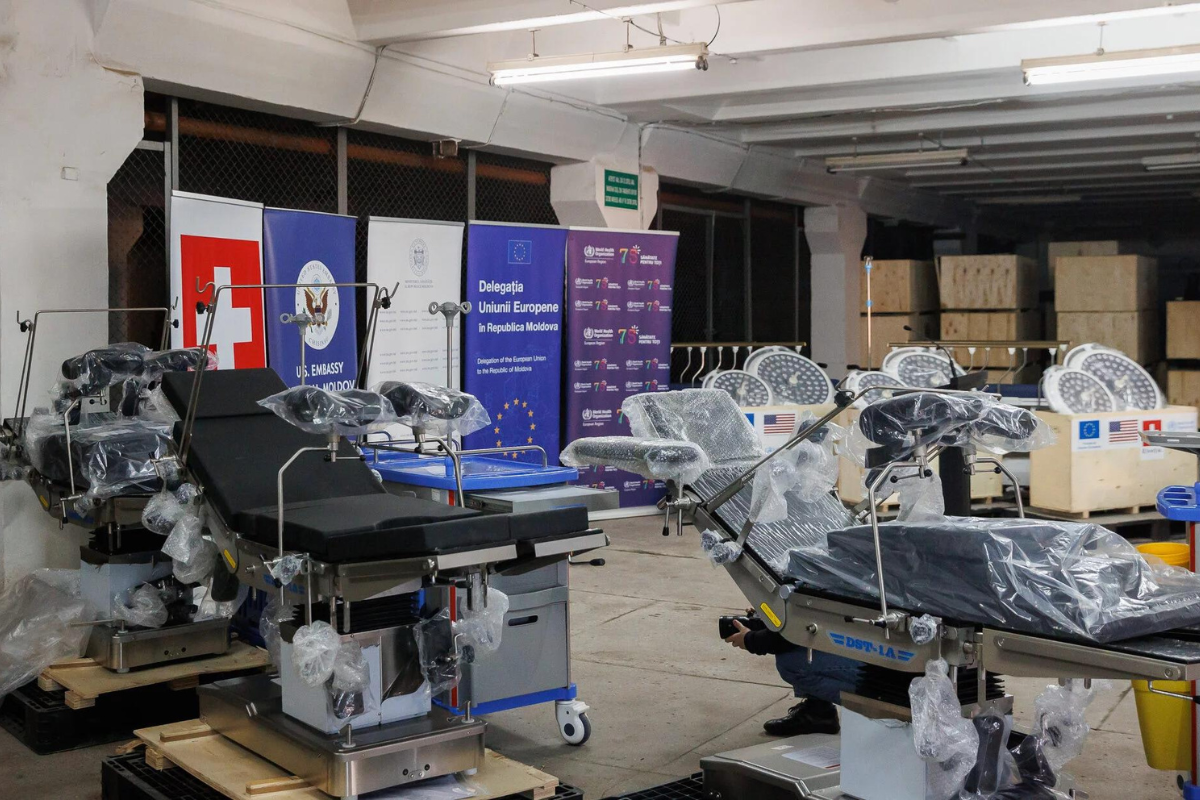Scientists are calling for a review of the 14-day rule on embryo research, saying that extending the limit could help uncover the causes of recurrent miscarriage and congenital conditions.
Until now, scientists studying the earliest stages of life have been restricted to cultivating embryos up to the equivalent of 14 days of development. They can then pick up the path of development several weeks later, on pregnancy scans and from material donated from terminations.
But this leaves a “black box” period from two to around four weeks of development that has never been directly studied and which scientists say could hold the key to improving fertility treatments and the understanding of a variety of birth defects.
Dr Peter Rugg-Gunn, of the Babraham Institute in Cambridge , said:
The period from two weeks to four weeks has been labelled the black box of embryo development. There’s no practical way to study this currently so our knowledge is really limited. Studying embryos beyond the 14-day limit could bring benefits to patients. The sooner it could be allowed, the sooner patients could benefit in the UK.
Potential benefits include finding the causes of implantation failure, where the embryo does not embed in the womb lining causing miscarriage, and the origins of congenital heart defects, which affect about one in 100 births and are estimated to be responsible for about 40% of prenatal deaths.

The UK’s 14-day rule was first proposed in the 1984 Warnock report on the ethics and regulation of IVF technology, and has been law since 1990. It bans the cultivation of embryos beyond 14 days of development or before the formation of the primitive streak (which sets up the body’s axis) and was intended to balance the potential medical benefits of research with the special status of the human embryo.
In 1990, though, the limit was theoretical because scientists could not maintain embryo development in the lab beyond a few days. In the past five years, this has changed and a growing number of labs around the world are able to closely replicate development right up to the legal limit.



